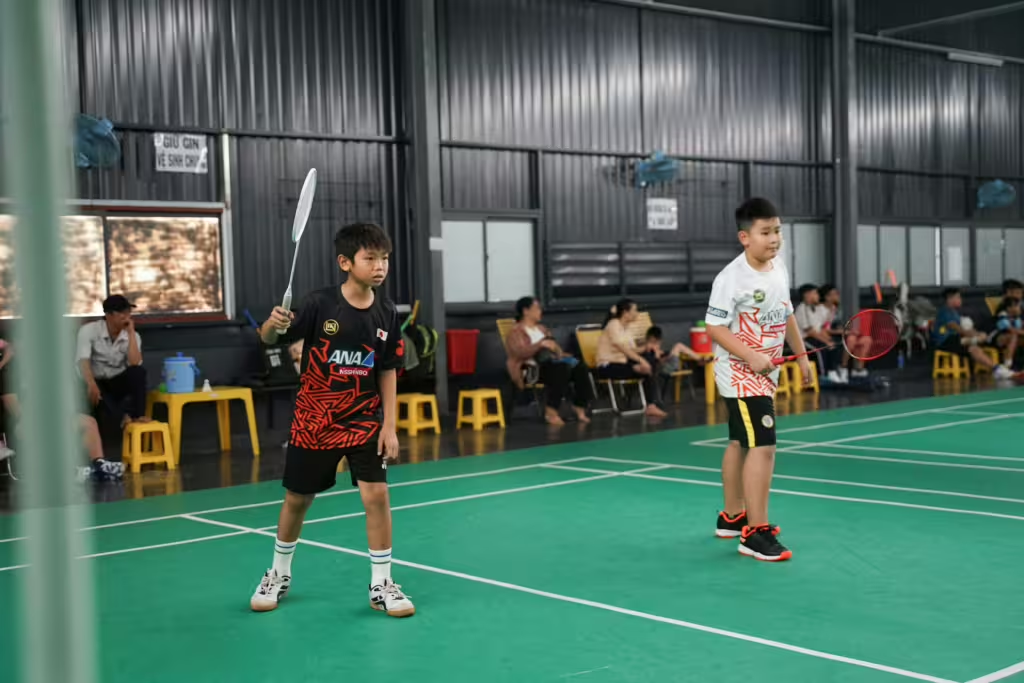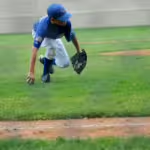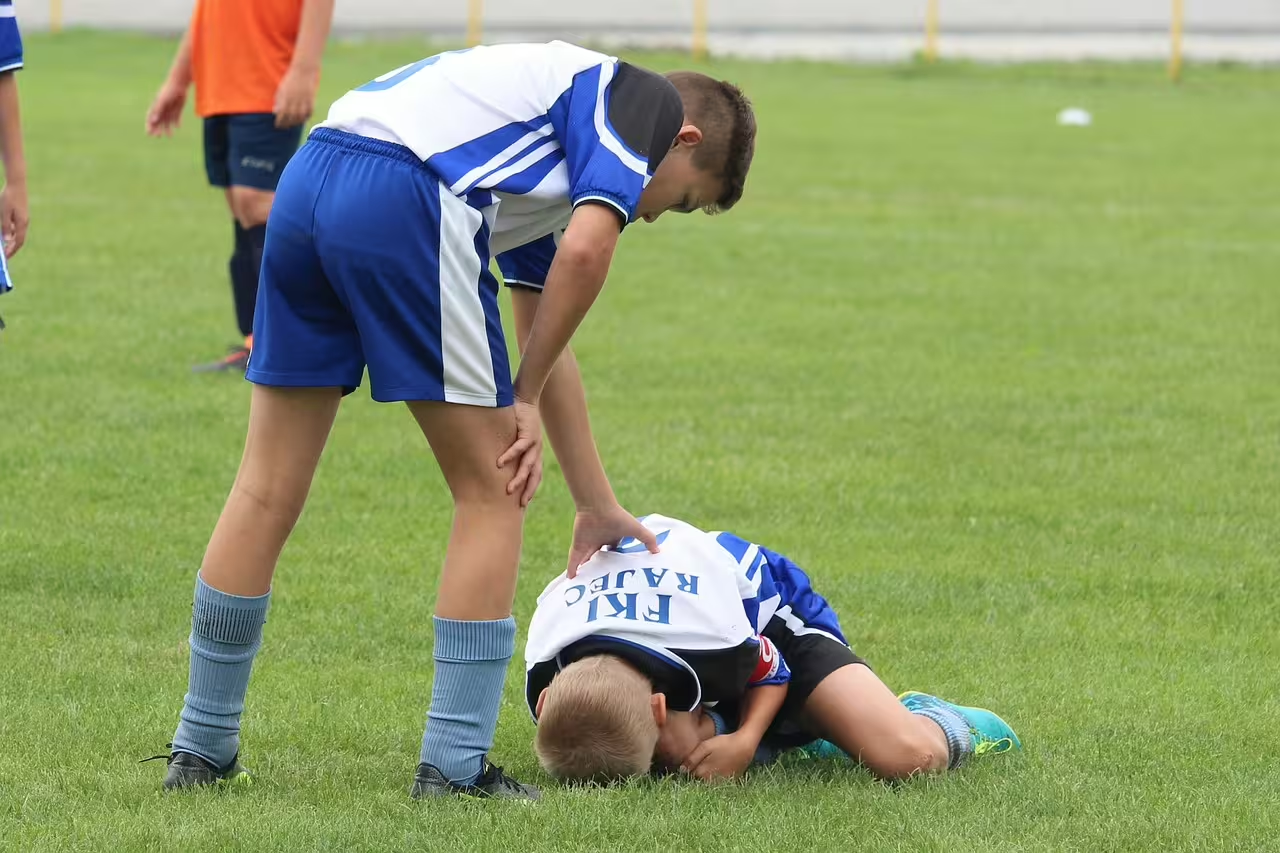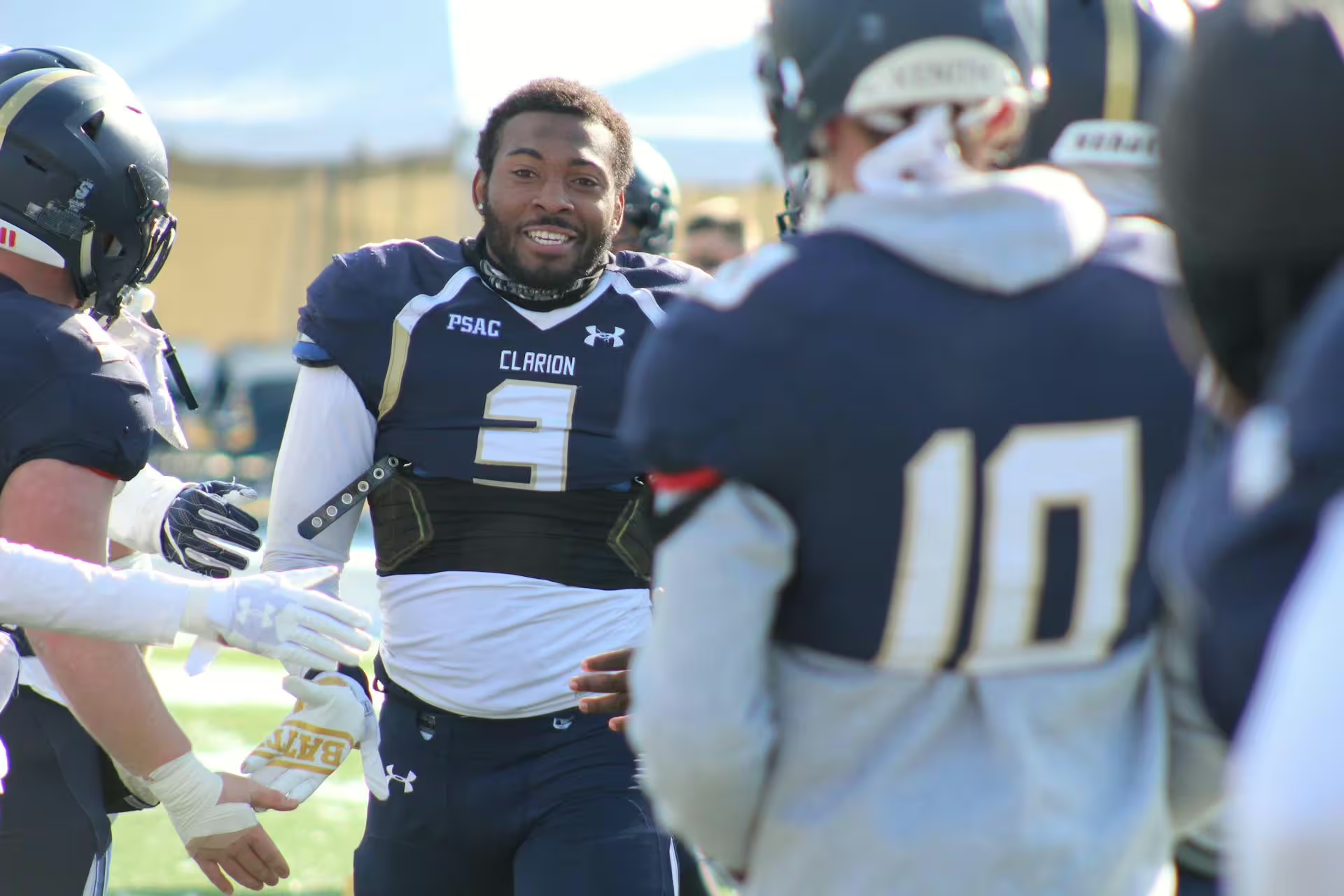When you’re a kid, playing sports can be an exciting and fulfilling experience. Sports also offer valuable life lessons and physical benefits for children. There are many firsts throughout childhood sports, from the thrill of competing to the joy of being part of a team, and all of these triumphant moments are punctuated by another mainstay of childhood: school. Juggling sports and schoolwork can be challenging at any age, and that challenge escalates exponentially as academic responsibilities inevitably increase. Nevertheless, with the right strategies, young athletes can successfully navigate a homeostatic balance between their athletic pursuits with their academic commitments.
In this article, we will provide young athletes some valuable tips to help manage their time more effectively. With a little finagling, this advice can be implemented so that young athletes can still enjoy their sports experience, meet their goals, and maintain academic success.
Understand the Importance of Balance
Why Balance Matters
Balance is not an easy thing for kids to understand, at least when it comes to more intangible definitions of the term. Nevertheless, finding the right balance between sports and schoolwork is crucial for young athletes. Should they choose to continue in their sports career into high school, college, and beyond, that balance will become ever more important. Many college sports scholarships depend on maintaining academic excellence, and being unable to balance the sport and the lessons could prove a disastrous result for many a varsity athlete.
Moreover, both of these facets have profound and positive impact on a child’s life. Engaging in sports helps develop physical skills, teamwork, and discipline, while schoolwork fosters critical thinking, creativity, and academic knowledge. Therefore, it’s imperative that children learn balance early. Achieving said balance ensures that kids excel in both areas without feeling overwhelmed or having to sacrifice one for the other.
Consequences of Imbalance
It isn’t just the eventual academic ramifications that can affect a young athlete. There are more than a few timely, emotional consequences that can upset them in the meantime. Failing to strike the right balance between sports and academic responsibilities can lead to stress, burnout, and declining performance in both areas.
Young students might feel overwhelmed by their responsibilities, resulting in decreased motivation. They might feel as though they can’t do or enjoy either pursuit. As such, it’s important for parents, coaches, and teachers to help kids understand the consequences of falling behind in either area. If a kid knows what might happen, it can assist in motivating them towards implementing strategies to maintain that balance.
Set Clear Goals
Academic Goals
Parents and teachers should establishing clear academic goals from the onset. This is the first step in helping a child to balance their sports with their schoolwork. These goals ought to be specific, measurable, achievable, relevant, and time-bound. These are called SMART goals, and they are the cornerstone of success for many young athletes. One example of such a goal is saying something like, “I want to maintain a B average in all my subjects this semester,” rather than broadly stating, “I want to do well in school.”
Athletic Goals
Athletic goals should be similarly SMART: specific, measurable, achievable, relevant, and time-bound. Young athletes can set specific athletic goals for themselves as individuals, such as improving their skills or reaching a certain level in their sport, but they can also attempt to contribute to their team’s success. In either case, the goals should not put any undue stress on the child. It’s important for parents and coaches to measure these goals and discuss them with the kid to ensure that they aren’t too grandiose or difficult to achieve.
In either case, by having clear goals in both academics and sports, young athletes can learn to prioritize their time and focus on what matters most.
Create a Schedule
Time Management
One of the most effective ways to introduce a child to the concept of balance is to introduce a schedule into the equation. Structured schedules allow kids to visualize their sports and school responsibilities and manage them in a tangible way. With a schedule in hand, young athletes can manage their time effectively and ensure that they allocate enough time for both studies and practice.
- Daily Schedule: A good daily schedule should break down time for school, homework, practice, and any additional commitments like household chores.
- Weekly Overview: Making a schedule of the entire week at a glance helps kids to identify important events, such as games or exams, and plan accordingly.
- Flexibility: A schedule should not be unbreakable. Sure, keeping to that schedule is pretty important, but it shouldn’t be something that feels restricting. Life can be unpredictable at times, and adjustments may be necessary given the circumstances.
Use Technology
There are plenty of apps out there to help people manage their schedules, many of which are geared towards younger people. Utilizing technology can help kids to stay organized, manage their time, and be reminded about scheduled activities and practices. Calendar apps can also feature interactive to-do lists or list out the due dates of upcoming assignments. Tablet and smartphone apps can also help in tracking assignment deadlines and managing sports commitments like upcoming playoffs and the like.
Prioritize Tasks
Identify Priorities
Task management is difficult for many adults to manage, let alone children. Nevertheless, parents should encourage young athletes to prioritize their tasks. By learning to prioritize things, kids learn which tasks are most important and which can wait. After all, not every assignment or practice will hold the same level of urgency. Introducing this concept early will help kids learn to effectively manage their time and energy. This skill will also prove immensely helpful as they grow, eventually allowing them to manage work, parenting, and/or leisure activities well into adulthood.
- Academic Deadlines: Students should understand which assignments are due soon and tackle those first.
- Practice and Games: Young athletes should recognize which practices are essential for performance in upcoming games and prioritize those as well.
Break Tasks into Smaller Steps
Smaller bites are far easier to chew, and the same concept can be used to describe task management. Breaking larger tasks into smaller, manageable steps can stop kids from feeling overwhelmed. Procrastination is the bane of a balanced schedule. One example of this is doing a little bit of a big school project each day rather than, trying to get it all done the night before it’s due. This approach makes tasks feel more achievable and less daunting, especially to elementary school kids. That said, middle and high school students could choose to employ this methodology too! *cough* Just a suggestion…
Stay Organized
Keep a Planner
Organization is key to balance in one’s personal life. Using a planner, whether digital or physical, can help students and athletes keep track of their school assignments, projects, practices, and games. If the planner is used, parents should seek to update it on a regular basis. This will ensure that nothing slips through the cracks. It will also turn using the planner into a habit, which helps kids stay on track and incorporate it into their routine.
- Color-Coding: Parents should consider color-coding tasks by subject or priority level. This visual aid can make it easier to see what needs the most attention at a glance.
- Checklists: If your child is using a planner, consider incorporating daily or weekly checklists into the process. This is a good way for kids and parents to monitor their progress and ensure that all tasks are completed on time.
Organize Study Space
Having a dedicated study space is just as important as having a space to practice. If you’re trying to help your child understand balance, you need to show equal preference for sports and academic pursuits. A good study space should be organized and free of distractions in order to maintain focus and productivity. It should also be neat and tidy. A tidy environment can help young athletes stay on task and complete their work in a reasonable time frame.
Communicate with Coaches and Teachers
Open Dialogue
Parents should maintain an open communication with both coaches and teachers. Such discussions can ensure that young athletes navigate their responsibilities accordingly. If you notice that your child is struggling to balance their commitments, don’t hesitate to reach out for support. Coaches and teachers are well-versed in the idea of balance and often have suggestions to help strengthen that balance.
- Coaches: If your kid is struggling with schoolwork but doing well at practice, inform their coaches about the pressing academic concerns. They may provide flexibility in practice schedules or allow for adjustments based on upcoming exams or projects.
- Teachers: On the academic side of things, be open about situations that might occur as a result of sports commitments. For instance, if your kid is anticipating difficulty in meeting academic deadlines discuss it with their teachers. Being open about such things can lead to mutual understanding and potential accommodations. Don’t assume anything though. The simple answer might be that something has to give and your kid might need to buckle down a bit.
Seek Guidance
Both coaches and teachers are available to offer valuable advice to parents on how to balance sports and academics in an effective manner. These people are professionals, many of whom have been working with kids for a very long time. Invite them to share their experiences or ask them about providing strategies that have worked for other students in the past.
Focus on Self-Care
Physical Health
Staying physically healthy is essential for young athletes to perform well in sports, but it will help them in their academic pursuits too! Parents should ensure that their children have proper nutrition, hydration, and sleep. All of these factors are crucial for maintaining energy levels and mental focus.
- Balanced Diet: Eating a balanced diet can improve concentration and stamina. Parents should prioritize fruits, vegetables, whole grains, and lean proteins to maintain that balance.
- Hydration: Kids don’t drink enough water, but staying hydrated is essential for both physical performance and cognitive function.
- Sleep: Parents should aim for 8-10 hours of sleep each night for their kids. Getting enough sleep enhances performance in both sports and academics. It might not be as easy as all that, of course, but this amount allows for adequate rest and recovery.
Mental Health
Whether you’re a kid or not, it’s mentally taxing to have to balancing sports and schoolwork. Trying to find this balance can sometimes lead to stress. Thus, parents should be mindful about their kids’ headspace. If you notice your kid is having trouble mentally or emotionally, suggest that they engage in activities that promote mental well-being, such as:
- Mindfulness: Practicing mindfulness or meditation can help reduce anxiety and improve focus, even in young children.
- Hobbies: Kids should be free to pursue hobbies outside of sports and schoolwork at times. Hobbies can provide a much-needed break and allow for mental relaxation.
Learn to Say No
Recognizing Limits
As kids become more involved in sports, they may be tempted to take on too many commitments at once. It’s essential that parents recognize their kids personal limits and impart that it’s ok for them to say no sometimes. In fact, parents should not feel bad about stepping in now and again if they feel that their child is starting to get overwhelmed; even if it was the kid’s choice to take on those responsibilities in the first place!
Choose Wisely
Before committing to new activities or teams, parents should urge their children to consider how those commitments may impact their present goals. If the purpose is balance, any added responsibility can tip the scales, and that’s no good. Young athletes should be selective about what they do, at least until they understand what they are and aren’t capable of doing.
Reflect on Progress
Parents should help their kids reflect on their success and their progress in both areas. Encouraging young athletes to reflect on their progress can help them stay motivated. It also helps children to learn what they gave accomplished and creates positivity and high self-esteem.
Cultured Athlete Says…
Balancing sports and schoolwork can be challenging, but it’s eminently rewarding for kids and parents alike. If you’ve set the right goals and helped your child to balance them in a way that’s healthy and self-motivating, then you’ve done your job, Still, always remind your kids how important it is to maintain flexibility and be kind to themselves. Many adults fail to find balance, so don’t be too hard on them if your kids don’t figure it out right away. We’re here to help them, after all.
Discover more from CulturedAthlete
Subscribe to get the latest posts sent to your email.






